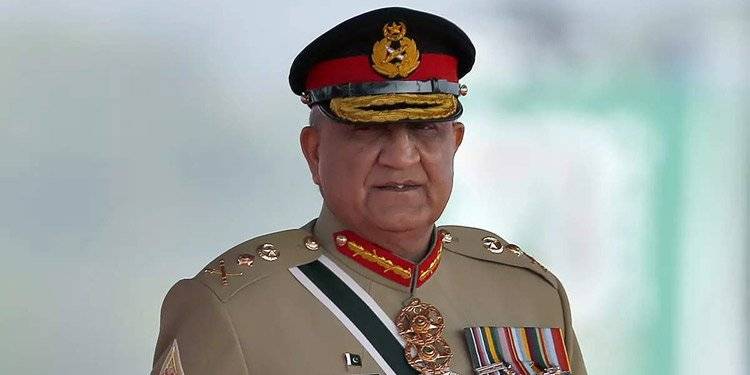
Outgoing Chief of Army Staff (COAS) General Qamar Javed Bajwa said on Wednesday that the military had decided to adopt a policy of neutrality in politics in February, 2021.
The COAS made the comments while delivering his farewell address at an event organised on the occassion of Defence Day. He said the decision had been taken after taking note of how the army was subjected to criticism for interfering in politics over seven decades despite always striving to serve the nation. This, Bajwa, contrasted how criticism of the Indian Army was always muted across the border despite the force being guilty of gross human rights violations.
The military's past interference in politics, he said, was "unconstitutional". Bajwa, however, was pained to note how many had resorted to unbecoming language for the military in place of welcoming the policy of neutrality. A false narrative on an international conspiracy, he said, was proliferated. Rejecting this, he said how could the military be expected to be a silent spectator if an international conspiracy was afoot in the nation. Bajwa said an attempt was now underway to abandon the narrative.
The army, which he said never went against national interest had displayed great patience in face of such antics. This must not be tested further.
Bajwa said the army had commenced political catharsis. It was now binding on political parties to do their bit.
The COAS said that the 1971 dismemberment of Pakistan was rooted in a political, not military failure. Bajwa said this was rarely spoken about. The military, he said, had fought gallantly in face of overwhelming odds. Bajwa said the nation had failed to acknowledge its fallen in the conflict. Paying tribute to them, he said nations that forget their martyrs are doomed.
The COAS made the comments while delivering his farewell address at an event organised on the occassion of Defence Day. He said the decision had been taken after taking note of how the army was subjected to criticism for interfering in politics over seven decades despite always striving to serve the nation. This, Bajwa, contrasted how criticism of the Indian Army was always muted across the border despite the force being guilty of gross human rights violations.
The military's past interference in politics, he said, was "unconstitutional". Bajwa, however, was pained to note how many had resorted to unbecoming language for the military in place of welcoming the policy of neutrality. A false narrative on an international conspiracy, he said, was proliferated. Rejecting this, he said how could the military be expected to be a silent spectator if an international conspiracy was afoot in the nation. Bajwa said an attempt was now underway to abandon the narrative.
The army, which he said never went against national interest had displayed great patience in face of such antics. This must not be tested further.
Bajwa said the army had commenced political catharsis. It was now binding on political parties to do their bit.
The COAS said that the 1971 dismemberment of Pakistan was rooted in a political, not military failure. Bajwa said this was rarely spoken about. The military, he said, had fought gallantly in face of overwhelming odds. Bajwa said the nation had failed to acknowledge its fallen in the conflict. Paying tribute to them, he said nations that forget their martyrs are doomed.

